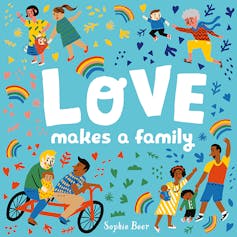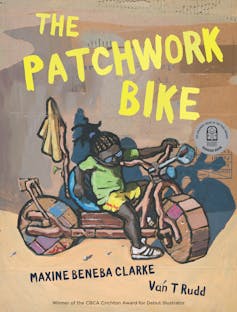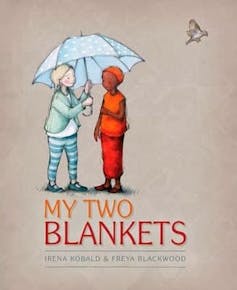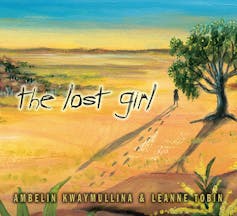Professional development
Workforce
Eight Australian picture books that celebrate family diversity

Freya Lucas
Jan 09, 2019
Save
The official label used by the Australian government to define a traditional family (a two parent family with biological or adopted children only) is “intact”: Not damaged or impaired in any way. Complete. Whole. Unbroken.
This is problematic when we think about all the other possible ways to live in a family: blended, step, single parent, foster, or any other family that diverges from we might call the “traditional” family model.

In Australian picture books, family representation has been overwhelmingly traditional; not just “intact”, but specifically white, middle class, with a mum, dad, and a (frequently blonde) male child protagonist. Children from diverse families are rarely represented.
But this may be changing. The following are eight recently published Australian picture books that break the mould and celebrate family diversity, showing that all families - whatever shape they take - are intact.
Love Makes a Family by Sophie Beer (2018)
This vibrantly colourful book showcases families in many forms, including same-sex and single parents, with character skin tones varying on every page. Although families are at the centre of this book, diverse family representation is explored through the illustrations, not the text. Instead, the story focuses on the one thing that truly makes a family - love.
The Patchwork Bike by Maxine Beneba Clarke and Van T Rudd (2017)

This book tells the story of three siblings and their patchwork bike - a bike that they have made themselves out of scrap. The reader is introduced to the child protagonist’s village with “mud-for-walls” houses, and their mother, who wears a hijab. Not only does this book showcase a single parent family of colour, but it also shows a very different lifestyle and landscape to what many Australian children would be familiar with.
I’m Australian Too by Mem Fox and Ronojoy Ghosh (2017)
This book focuses on the multiculturalism of Australia. It showcases families from different cultures and backgrounds (including several families that have fled war torn countries, and one young girl living in a refugee camp). The story acknowledges and embraces our differences while highlighting that we are all connected - and all Australian - regardless of where we come from.
Bigger Digger by Brett Avison and Craig Smith (2011)
Brett Avison’s Bigger Digger is the first of four books featuring a young boy called Bryn and his dog Oscar. In this story, Bryn and Oscar make an exciting discovery when digging in the backyard, and need bigger and bigger diggers to uncover what they have found. Each of Avison’s Bryn and Oscar books is set on “Mum and Ted’s farm”. The use of Mum and Ted as titles for the adult characters is a simple but effective way of introducing the concept of step families.
Family Forest by Kim Kane and Lucy Masciullo (2010)
This book showcases one particular family - with half, whole and step siblings as well as different parental relationships (a father and stepmother, and a mother and her partner). A common issue with diverse family representation is that it often comes in the form of “issue books” - books that are issue driven rather than story driven. It is often difficult to explain a topic or issue without sacrificing story, but Family Forest manages to explain blended families in a fun and engaging way.
My Two Blankets by Irena Kobald and Freya Blackwood (2014)

The Lost Girl by Ambelin Kwaymullina and Leanne Tobin (2014)

This book tells the story of a young Aboriginal girl who is lost, but finds her way home to her people’s camp with the guidance of mother nature. Instead of having a mum and a dad, or one biological family, the story refers to the girl’s mothers, aunties, grandmothers, fathers, uncles and grandfathers. This book is unique in that it showcases a family type very rarely explored - traditional Aboriginal kinship groups.
One Photo by Ross Watkins and Liz Anelli (2016)
In this book, a father with early onset Alzheimer’s buys himself a camera and starts snapping pictures of the things that he wants to remember. This confuses and upsets his wife and son (who is telling the story), as he hasn’t taken a single photo of them. Eventually, the father passes away and leaves one photo behind - a photo of him with his wife and son - and they realise that he wasn’t taking photos of things he wanted to remember, but things he wanted them to remember about him. One photo examines both the illness and death of a parent in a touching and age-appropriate way.Correction: This article was amended on January 10 to correct the name of the authors for Bigger Digger.
Sarah Mokrzycki, PhD Candidate and sessional lecturer/tutor, Victoria University
This article is republished from The Conversation under a Creative Commons license. Read the original article.
Don’t miss a thing
Related Articles



















